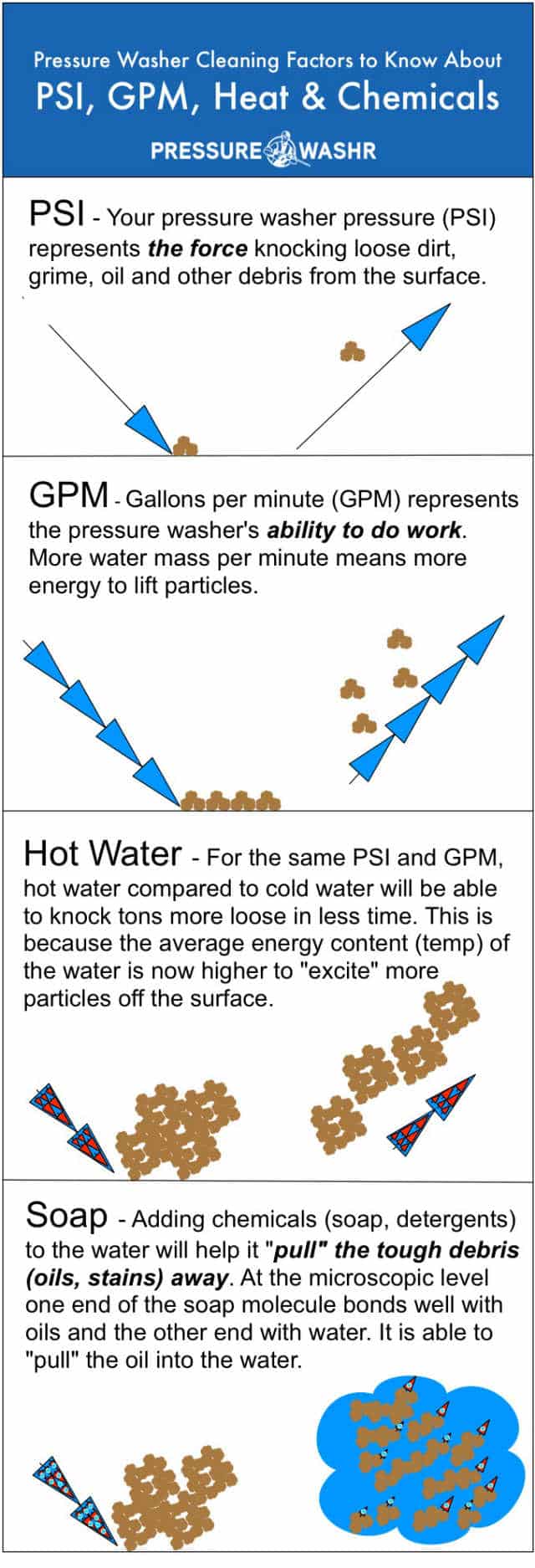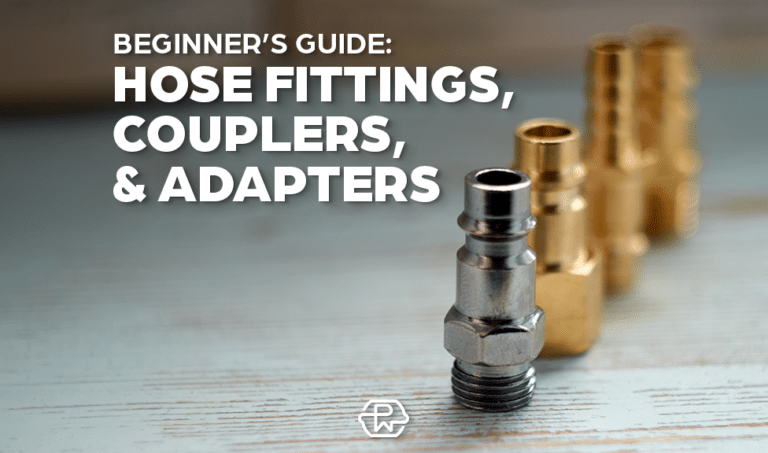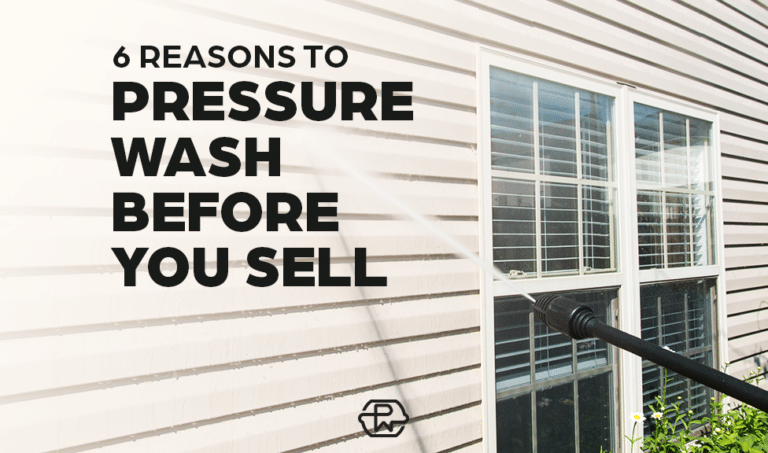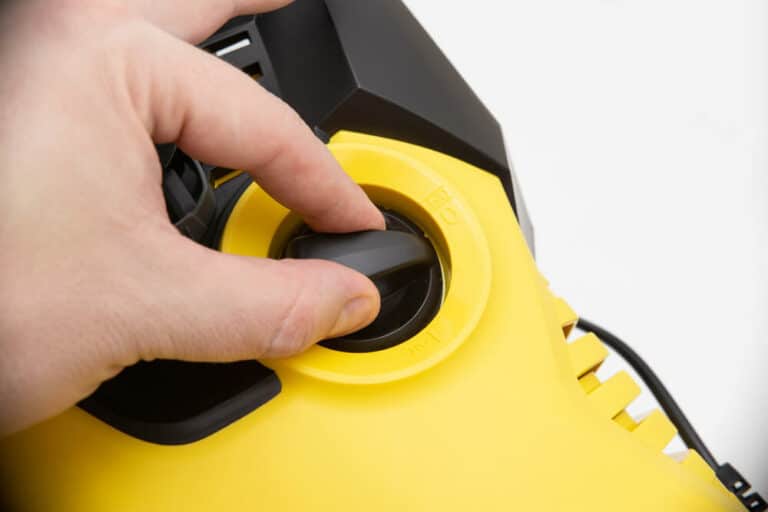Guide to Pressure Washing PSI, GPM, Heat, and Chemicals
Too many people are only concerned about pressure washer PSI rating when buying, renting or using a pressure washer.
The stripping power the pump can deliver is important only to knocking dirt and grime loose from the surface. PSI doesn’t tell you anything about the pressure washer’s ability to carry the debris away from the surface before it sticks again. For that, we need to look at the rinsing power and flow rate in gallons per minute (GPM). The higher the GPM, the faster the debris will move after being forced off by the pressure.
More experienced pressure washer users know about cleaning units (CUs), which is GPM x PSI. For example, a 2,000 PSI machine with 2 GPM has 4,000 CUs. Combining PSI and GPM into one number gives a better idea of total cleaning power/ability. Finding the correct combination of GPM and PSI will make all the difference in getting your pressure washing job done efficiently.
But professionals know even the CU number is not enough to properly gauge what work one pressure washer can do compared to another unit. This is because there are five total pressure washer cleaning factors to consider:
- Pressure – Pounds per square inch (PSI) is the force of water hitting an area of a surface.
- Flow rate – Gallons per minute (GPM) refers to the water volume coming out of the nozzle.
- Heat – The higher the temperature of the water, the more heat (energy) it has. Hot water pressure washers can increase the temperature of incoming water by 130 degrees F (55C).
- Chemicals – Soap, detergent, and other cleaning agents used to remove tough stains from specific surfaces.
- Nozzle spray pattern – There are many different nozzle spray patterns suited to specific tasks, from getting gum off concrete to adding soap to a surface.
Take a look at this infographic to understand why each cleaning factor is important.

Which is the most important single factor in pressure cleaning?
There is no scientific answer to this because there are too many factors and situations to look at.
If all other cleaning factors are the same (PSI, GPM, Soap), adding more heat is probably the biggest game-changer in terms of cleaning efficiency. More heat in the form of hot vs. cold or warm water will scrub more debris and solids from a surface – and faster.
Just think of washing dishes in your sink.
The tap water is 50 PSI, 8 GPM, 60 degrees Fahrenheit and no soap added.
Now play with these factors a bit to see which gets the best result.
- What happens if you double the PSI? 100 PSI is like blocking half the flow at the spout with your thumb. You are creating a nozzle that gives more pressure and a higher PSI. Still, this won’t do much extra.
- What happens if you double the GPM? More mass of water is hitting the surface, but the stains and stuck-on cheese aren’t being knocked loose. This will waste a lot of water without doing much to clean on its own.
- What happens if you double the temperature? If you go from 60 F to 120 F, you are essentially going from a cool pool temp to a scalding hot jacuzzi. Thermal injuries will occur after 5 seconds of contact with 140 F water. So 120 F is safe but very hot. Will it clean better than doubling PSI and GPM? Yes, it will – even at standard tap PSI and GPM.
- What happens if you add soap or detergent? Soap and detergent may help if given time. It is a better option than double GPM and double tap water PSI.
FAQs
Which factor is most important for commercial jobs?
Professional pressure washers used for commercial work tend to need a higher GPM. Contractors use special chemicals to help clean, so they need to focus more on rinsing power and get a commercial pressure washer with a high water flow.
Which factor is most important when power washing large surfaces?
The best pressure washer for large surfaces will have a higher GPM.
Is there a difference between using a gas-powered pressure washer or an electric pressure washer?
Gas-powered pressure washers tend to have higher PSIs. Most electric pressure washers’ PSI range starts at 1,300, while most gas-powered pressure washers start at 2,000.
Wouldn’t using the highest PSI always be best?
You don’t always want to use a high PSI because too much cleaning pressure can severely damage certain items such as wood decks or paint on cars. You should always make sure your pressure washer’s PSI matches the job you’re doing.







